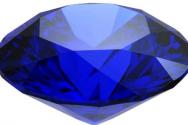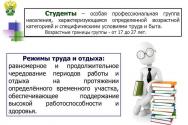Kuprin Alexander Ivanovich biography briefly for children. Alexander Kuprin (life and work) short message report
In literature, the name of Alexander Ivanovich Kuprin is associated with an important transitional stage at the turn of two centuries. Not the least role in this was played by the historical breakdown in the political and public life Russia. This factor undoubtedly had the strongest influence on the writer’s work. A.I. Kuprin is a man of unusual destiny and strong character. Almost all of his works are based on real events. An ardent fighter for justice, he sharply, boldly and at the same time lyrically created his masterpieces, which were included in the golden fund of Russian literature.
Kuprin was born in 1870 in the town of Narovchat, Penza province. His father, a small landowner, died suddenly when the future writer was only a year old. Left with his mother and two sisters, he grew up enduring hunger and all kinds of hardships. Experiencing serious financial difficulties associated with the death of her husband, the mother placed her daughters in a government boarding school, and together with little Sasha moved to Moscow.
Kuprin’s mother, Lyubov Alekseevna, was a proud woman, as she was a descendant of a noble Tatar family, as well as a native Muscovite. But she had to make a difficult decision for herself - to send her son to be raised in an orphan school.
Kuprin's childhood years, spent within the boarding house, were joyless, and his inner state always seemed depressed. He felt out of place, felt bitterness from the constant oppression of his personality. After all, given his mother’s origins, of which the boy was always very proud, the future writer, as he grew older and became an emotional, active and charismatic person.
Youth and education
After graduating from the orphan school, Kuprin entered a military gymnasium, which was later transformed into a cadet corps.
This event largely influenced the future fate of Alexander Ivanovich and, first of all, his work. After all, it was from the beginning of his studies at the gymnasium that he first discovered his interest in writing, and the image of Second Lieutenant Romashov from the famous story “The Duel” is the prototype of the author himself.
Service in an infantry regiment allowed Kuprin to visit many remote cities and provinces of Russia, study military affairs, the basics of army discipline and drill. The topic of officer everyday life has taken a strong position in many works of art the author, which subsequently caused controversial debates in society.
It would seem that, military career- the fate of Alexander Ivanovich. But his rebellious nature did not allow this to happen. By the way, service was completely alien to him. There is a version that Kuprin, while under the influence of alcohol, threw a police officer from the bridge into the water. In connection with this incident, he soon resigned and left military affairs forever.
History of success
After leaving the service, Kuprin experienced an urgent need to obtain comprehensive knowledge. Therefore, he began to actively travel around Russia, meet people, and learn a lot of new and useful things from communicating with them. At the same time, Alexander Ivanovich sought to try his hand at different professions. He gained experience in the field of surveyors, circus performers, fishermen, even pilots. However, one of the flights almost ended in tragedy: as a result of the plane crash, Kuprin almost died.
He also worked with interest as a journalist in various printed publications, wrote notes, essays, and articles. The spirit of an adventurer allowed him to successfully develop everything he started. He was open to everything new and absorbed what was happening around him like a sponge. Kuprin was a researcher by nature: he greedily studied human nature, wanted to experience all the facets interpersonal communication on myself. Therefore, in time military service, faced with obvious officer licentiousness, hazing and humiliation of human dignity, the creator in a damning manner formed the basis for writing his most famous works, such as “The Duel”, “Junkers”, “At the Turning Point (Cadets)”.
The writer built the plots of all his works based solely on personal experience and the memories he received during his service and travels around Russia. Openness, simplicity, sincerity in the presentation of thoughts, as well as the reliability of the description of characters’ images became the key to the author’s success in the literary path.
Creation
Kuprin was eager for his people with all his soul, and his explosive and honest character, due to Tatar origin mother, would not allow those facts about the lives of people that he personally witnessed to be distorted in writing.
However, Alexander Ivanovich did not condemn all of his characters, even bringing their dark sides to the surface. Being a humanist and a desperate fighter for justice, Kuprin figuratively demonstrated this feature of his in the work “The Pit”. It tells about the life of brothel dwellers. But the writer does not focus on the heroines as fallen women; on the contrary, he invites readers to understand the prerequisites for their fall, the torment of their hearts and souls, and invites them to discern in each libertine, first of all, a person.
More than one of Kuprin’s works is imbued with the theme of love. The most striking of them is the story ““. In it, as in “The Pit,” there is the image of a narrator, an explicit or implicit participant in the events described. But the narrator in Oles is one of the two main characters. This is a story about noble love, partly the heroine considers herself unworthy of it, whom everyone takes for a witch. However, the girl has nothing in common with her. On the contrary, her image embodies all possible feminine virtues. The ending of the story cannot be called happy, because the heroes are not reunited in their sincere impulse, but are forced to lose each other. But happiness for them lies in the fact that in their lives they had the opportunity to experience the power of all-consuming mutual love.
Of course, the story “The Duel” deserves special attention as a reflection of all the horrors of army morals that reigned in tsarist Russia at that time. This is a clear confirmation of the features of realism in Kuprin’s work. Perhaps this is why the story caused a flurry of negative reviews from critics and the public. Romashov's hero, in the same rank of second lieutenant as Kuprin himself, who once retired, like the author, appears before readers in the light of an extraordinary personality, whose psychological growth we have the opportunity to observe from page to page. This book brought wide fame to its creator and rightfully occupies one of the central places in his bibliography.
Kuprin did not support the revolution in Russia, even though at first he met Lenin quite often. Ultimately, the writer emigrated to France, where he continued his literary work. In particular, Alexander Ivanovich loved to write for children. Some of his stories (“White Poodle”, ““, “Starlings”) undoubtedly deserve the attention of the target audience.
Personal life
Alexander Ivanovich Kuprin was married twice. The writer's first wife was Maria Davydova, the daughter of a famous cellist. The marriage produced a daughter, Lydia, who later died during childbirth. Kuprin's only grandson, who was born, died from wounds received during the Second World War.
The second time the writer married Elizaveta Heinrich, with whom he lived until the end of his days. The marriage produced two daughters, Zinaida and Ksenia. But the first one died in early childhood from pneumonia, and the second became famous actress. However, there was no continuation of the Kuprin family, and today he has no direct descendants.
Kuprin's second wife survived him by only four years and, unable to withstand the ordeal of hunger during the siege of Leningrad, committed suicide.
- Kuprin was proud of his Tatar origin, so he often put on a national caftan and skullcap, going out to people in such attire and going to visit people.
- Partly thanks to his acquaintance with I. A. Bunin, Kuprin became a writer. Bunin once approached him with a request to write a note on a topic that interested him, which marked the beginning literary activity Alexander Ivanovich.
- The author was famous for his sense of smell. Once, while visiting Fyodor Chaliapin, he shocked everyone present, eclipsing the invited perfumer with his unique flair, unmistakably recognizing all the components of the new fragrance. Sometimes, when meeting new people, Alexander Ivanovich sniffed them, thereby putting everyone in an awkward position. They said that this helped him better understand the essence of the person in front of him.
- Throughout his life, Kuprin changed about twenty professions.
- After meeting A.P. Chekhov in Odessa, the writer went at his invitation to St. Petersburg to work in a famous magazine. Since then, the author acquired a reputation as a rowdy and drunkard, as he often took part in entertainment events in a new environment.
- The first wife, Maria Davydova, tried to eradicate some of the disorganization inherent in Alexander Ivanovich. If he fell asleep while working, she deprived him of breakfast, or forbade him to enter the house unless new chapters of the work he was working on at that time were ready.
- The first monument to A.I. Kuprin was erected only in 2009 in Balaklava in Crimea. This is due to the fact that in 1905, during the Ochakov uprising of sailors, the writer helped them hide, thereby saving their lives.
- There were legends about the writer's drunkenness. In particular, wits repeated the well-known saying: “If truth is in wine, how many truths are there in Kuprin?”
Death
The writer returned from emigration to the USSR in 1937, but with poor health. He had hopes that a second wind would open in his homeland, he would improve his condition and be able to write again. At that time, Kuprin's vision was rapidly deteriorating.
Interesting? Save it on your wall!A very short biography (in a nutshell)
Born on September 7, 1870 in the city of Narovchat, Penza region. Father - Ivan Ivanovich Kuprin (1834-1871), official. Mother - Lyubov Alekseevna (1838-1910). In 1880 he entered the Moscow Cadet Corps, and in 1887 he entered the Alexander Military School. On February 3, 1902 he married Maria Davydova. Since 1907, Heinrich began to live with Elizabeth. From two marriages he had three daughters. In 1920 he emigrated to France. In 1937 he returned to the USSR. Died on August 25, 1938 at the age of 67. He was buried in St. Petersburg on the Literary Bridge of the Volkovsky Cemetery. Main works: “Duel”, “The Pit”, “Moloch”, “ Garnet bracelet", "Wonderful Doctor" and others.
Brief biography (details)
 Alexander Kuprin - an outstanding Russian realist writer late XIX century. The writer was born on September 7, 1870 in the district town of Narovchat, Penza region, in the family of a hereditary nobleman. The writer's father, Ivan Ivanovich, died shortly after the birth of his son. Mother, Lyubov Alekseevna, was from a family of Tatar princes. After the death of her husband, she moved to Moscow, where Alexander, at the age of six, was sent to an orphanage. In 1880 he entered the Moscow Cadet Corps, and in 1887 he entered the Alexander Military School. He would later write about the years spent at this school in the story “At the Turning Point” and in the novel “Junker”.
Alexander Kuprin - an outstanding Russian realist writer late XIX century. The writer was born on September 7, 1870 in the district town of Narovchat, Penza region, in the family of a hereditary nobleman. The writer's father, Ivan Ivanovich, died shortly after the birth of his son. Mother, Lyubov Alekseevna, was from a family of Tatar princes. After the death of her husband, she moved to Moscow, where Alexander, at the age of six, was sent to an orphanage. In 1880 he entered the Moscow Cadet Corps, and in 1887 he entered the Alexander Military School. He would later write about the years spent at this school in the story “At the Turning Point” and in the novel “Junker”.
The writer's first literary experience manifested itself in poems that were never published. Kuprin's work was first published in 1889. It was the story "The Last Debut". The writer collected rich material for his future works while serving in the Dnieper Infantry Regiment in 1890. A few years later, his works “Russian Wealth”, “Overnight”, “Inquiry”, “Hike” and others were published. It is believed that Kuprin was a very greedy person for impressions and loved to lead a wandering lifestyle. He was interested in people of various professions, from engineers to organ grinders. For this reason, the writer could equally well describe a variety of subjects in his books.
The 1890s were fruitful for Kuprin. It was then that one of his best stories, “Moloch,” was published. In the 1900s, the writer met such literary geniuses as Bunin, Gorky, Chekhov. In 1905, the most significant work writer - the story “The Duel”. This story immediately brought great success to the writer, and he began to give readings of individual chapters in the capital. And with the appearance of the stories “The Pit” and “The Garnet Bracelet,” his prose became a significant part of Russian literature.
The turning point in Kuprin’s life was the revolution that broke out in the country. In 1920, the writer emigrated to France, where he spent almost seventeen years. This was a kind of calm period in his work. However, after returning to his homeland, he wrote his last essay, “Native Moscow.” The writer died on the night of August 25, 1938 and was buried on the Literary Bridge in St. Petersburg.
Brief biography video (for those who prefer to listen)
A.I. Kuprin is a prominent representative of Russian critical realism, whose work occurred in the most difficult pre- and post-revolutionary years of the 20th century.
Writer Alexander Ivanovich Kuprin (1870 - 1938).
Early years
Alexander was born in the small town of Narovchat (today it is the Penza region) on August 26, 1870. He was orphaned very early (the father died when the child was one year old; a period of considerable financial difficulties began for the mother and her young son). His mother managed to give Sasha an education: having moved to Moscow, he studied at the Moscow Razumovsky boarding school.
In 1887, Alexander was accepted as a student at the Alexander Military School. The years of study became for him a period of accumulation of experience and first literary works. In 1889, he published a story, which he gave the title “The Last Debut.”
Stormy youth and the beginning of maturity
After studying for about 4 years, Kuprin served in the Dnieper Infantry Regiment, and then, after retiring, traveled around the south of Russia and tried himself in various professions: from a loader to a dentist. At this time he already begins to actively write. The story “Moloch”, the story “Olesya”, and the stories “Shulamith” and “Pomegranate Bracelet”, which later became classics, were published. From the pen of the writer came the story “The Duel” that brought him literary fame.
During the First World War, Kuprin opened a military hospital in his own house and took part in the fighting. He was interested in politics and in his views was close to the Social Revolutionaries.
Emigration and return to the homeland
Kuprin did not accept the October Revolution, joined the White movement, and emigrated in 1919. For 17 years he lived in Paris, continuing to work. One of the most significant works of this period - the story "Junker", based on memories. Illness, poverty, nostalgia for Russia forced the writer to return to Soviet Union. But he only had a year to live - Alexander Ivanovich died on August 25, 1938.
His works, whose heroes are representatives of the poor intelligentsia and ordinary people, have not lost their relevance in our time. Kuprin's heroes love life, try to survive, resist the surrounding cynicism and vulgarity. They live in a natural, changing world, where Good and Evil are forever intertwined and have an endless dispute with each other.
Brief information about Kuprin.
The life experience and creativity of A. I. Kuprin are extremely closely related to each other. The autobiographical element occupies an important place in the writer’s books. For the most part, the author wrote about what he saw with his own eyes, experienced in his soul, but not as an observer, but as a direct participant in life’s dramas and comedies. What he experienced and saw was transformed in different ways in his work - there were cursory sketches, an accurate description of specific situations, and a deep socio-psychological analysis.
At the beginning of his literary activity, the classic paid a lot of attention to everyday color. But even then he showed a penchant for social analysis. His entertaining book “Kyiv Types” contains not only picturesque everyday exoticism, but also a hint of the all-Russian social environment. At the same time, Kuprin does not delve into the psychology of people. Only as years passed did he begin to carefully and scrupulously study a variety of human material.
This was especially evident in such a theme of his work as the army environment. The writer’s first realistic work, the story “Inquiry” (1894), is associated with the army. In it, he described the type of person who suffers at the sight of injustice, but is spiritually restless, devoid of strong-willed qualities and unable to fight evil. And such an indecisive truth-seeker begins to accompany all of Kuprin’s work.
Army stories are notable for the writer's faith in the Russian soldier. She makes such works as “Army Ensign”, “Night Shift”, “Overnight” truly spiritual. Kuprin shows the soldier as cheerful, with rough but healthy humor, intelligent, observant, and prone to original philosophizing.
The final stage of creative quest at the early stage of literary activity was the story “Moloch” (1896), which brought real fame to the young writer. In this story, at the center of the action is a humane, kind, impressionable person who reflects on life. Society itself is shown as a transitional formation, that is, one in which changes are brewing, unclear not only acting persons, but also to the author.
Love occupied a large place in the work of A. I. Kuprin. The writer can even be called a singer of love. An example of this is the story “On the Road” (1894). The beginning of the story does not foreshadow anything sublime. A train, a compartment, a married couple - an elderly boring official, his young beautiful wife and a young artist who happened to be with them. He becomes interested in the official's wife, and she becomes interested in him.
At first glance, it is a story of a banal romance and adultery. But no, the writer’s skill turns a trivial plot into a serious topic. The story shows how chance meeting illuminates the life of two good people with honest souls. Kuprin built it in such a psychologically verified manner small piece that he was able to say a lot in it.
But the most remarkable work dedicated to the theme of love is the story “Olesya”. It can be called a forest fairy tale, drawn with the authenticity and precision of details inherent in realistic art. The girl herself is an integral, serious, deep nature; she has a lot of sincerity and spontaneity. And the hero of the story - a common person with an amorphous character. But under the influence of a mysterious forest girl, his soul brightens and, it seems, is ready to become a noble and integral person.
The work of A. I. Kuprin conveys not only the concrete, everyday, visible, but also rises to symbolism, implying the very spirit of certain phenomena. Such, for example, is the story “Swamp”. The overall coloring of the story is heavy and gloomy, similar to the swamp fog in which the action takes place. This almost plotless work shows the slow death of a peasant family in a forest lodge.
The artistic means used by the classic are such that there is a feeling of a disastrous nightmare. And the very image of a forest, dark and ominous swamp takes on an expanded meaning, creating the impression of some kind of abnormal swamp life smoldering in the gloomy corners of a huge country.
In 1905, the story “The Duel” was published, in which the techniques psychological analysis indicate Kuprin’s connection with the traditions of Russian classics of the 19th century. In this work, the writer showed himself to be a first-class master of words. He once again proved his ability to comprehend the dialectics of soul and thought, to artistically draw typical characters and typical circumstances.
A few words should also be said about the story “Staff Captain Rybnikov.” Before Kuprin, no one in Russian and foreign literature I didn’t create such a psychological detective story. The fascination of the story lies in the picturesque two-plane image of Rybnikov and the psychological duel between him and the journalist Shchavinsky, as well as in the tragic denouement that occurs under unusual circumstances.
The poetry of labor and the aroma of the sea pervade the stories “Listrigons”, which tell about Balaklava Greek fishermen. In this series, the classic showed the original corner in all its beauty Russian Empire. In the stories, the concreteness of the descriptions is combined with a kind of epicness and simple-minded fabulousness.
In 1908, the story “Shulamith” appeared, which was called a hymn female beauty and youth. This is a prose poem that combines sensuality and spirituality. There is a lot of bold, daring, frank in the poem, but there is no falsehood. The work tells about the poetic love of a king and a simple girl, which ends tragically. Shulamith becomes a victim of dark forces. The killer's sword kills her, but he is unable to destroy the memory of her and her love.
It must be said that the classic always had an interest in the “small”, “ ordinary people" He made such a person a hero in the story “The Garnet Bracelet” (1911). The message of this brilliant story is that love is as strong as death. The originality of the work lies in the gradual and almost imperceptible increase tragic theme. There is also a certain Shakespearean note. She breaks through the quirks of the funny official and captivates the reader.
The story “Black Lightning” (1912) is interesting in its own way. In it, the work of A.I. Kuprin is revealed from another side. This work depicts provincial, provincial Russia with its apathy and ignorance. But it also shows those spiritual forces that lurk in provincial towns and make themselves felt from time to time.
During the First World War, such a work as “Violets” came out from the pen of a classic, glorifying the spring season in a person’s life. And the continuation was social criticism, embodied in the story “Cantaloupe”. In it, the writer paints the image of a cunning businessman and hypocrite who profits from military supplies.
Even before the war, Kuprin began working on a powerful and deep social canvas, which he darkly and briefly called “The Pit.” The first part of this story was published in 1909, and in 1915 the publication of “The Pit” was completed. The work created true images of women who found themselves at the bottom of their lives. The classic masterfully depicted individual character traits and the dark corners of the big city.
Finding himself in exile after the October Revolution and Civil War, Kuprin began to write about old Russia as an amazing past that always pleased and amused him. The main point his works of this period consisted in revealing the inner world of his heroes. At the same time, the writer often turned to the memories of his youth. This is how the novel “Junker” appeared, which made a significant contribution to Russian prose.
The classic describes the loyal mood of future infantry officers, youthful love, and such eternal theme How mother's love. And of course, the writer does not forget nature. It is communication with nature that fills the youthful soul with joy and gives impetus to the first philosophical reflections.
“The Junkers” skillfully and knowledgeably describes the life of the school, while it provides not only educational, but also historical information. The novel is also interesting in the gradual formation of a young soul. The reader is presented with a chronicle of the spiritual development of one of the Russian youths of the late 19th – early 20th centuries. This work can be called an elegy in prose with great artistic and educational merits.
The skill of a realist artist and sympathy for the ordinary citizen with his everyday everyday worries were extremely clearly manifested in the miniature essays dedicated to Paris. The writer united them with one name - “Paris at home”. When A.I. Kuprin’s work was in its infancy, he created a series of essays about Kyiv. And after many years in exile, the classic returned to the genre of urban sketches, only the place of Kyiv was now taken by Paris.
French impressions were uniquely reunited with nostalgic memories of Russia in the novel “Zhaneta”. It soulfully conveyed the state of restlessness, mental loneliness, and unquenched thirst to find a loved one. The novel “Zhaneta” is one of the most masterful and psychologically subtle works and, perhaps, the saddest creation of the classic.
The fabulous and legendary work “The Blue Star” appears to readers as witty and original in its essence. In this romantic fairy tale main theme is love. The plot takes place in an unknown fantasy country, where an unknown people live with their own culture, customs, and morals. And a brave traveler, a French prince, penetrates this unknown country. And of course, he meets a fairytale princess.
Both she and the traveler are beautiful. They fell in love with each other, but the girl considers herself ugly, and all the people consider her ugly, although they love her for her kind heart. But the fact was that the people who inhabited the country were real freaks, but considered themselves handsome. The princess was not like her compatriots, and she was perceived as ugly.
A brave traveler takes the girl to France, and there she realizes that she is beautiful, and the prince who saved her is also beautiful. But she considered him a freak, just like herself, and was very sorry. This work has entertaining, good-natured humor, and the plot is somewhat reminiscent of old good fairy tales. All this made “Blue Star” a significant phenomenon in Russian literature.
In emigration, the work of A. I. Kuprin continued to serve Russia. The writer himself lived an intense, fruitful life. But every year it became more and more difficult for him. The stock of Russian impressions was drying up, but the classic could not merge with foreign reality. Taking care of a piece of bread was also important. And therefore one cannot help but pay tribute to the talented author. Despite his difficult years, he managed to make a significant contribution to Russian literature.
Photo from 1912
A.F. Marks
Alexander Ivanovich Kuprin born on September 7 (August 26, old style) 1870 in the city of Narovchat in the Penza province (now the village of Narovchat in the Penza region) in noble family. Father - Ivan Ivanovich Kuprin (1834-1871). Mother - Lyubov Alekseevna Kuprina (maiden name Kulunchakova) (1838-1910). When Alexander Ivanovich was one year old, his father died, and Lyubov Alekseevna and her son moved to Moscow. The education of the future writer begins at the Moscow Razumov School in 1876, at the age of six. After graduating from school in 1880, he entered the Second Moscow Military Gymnasium. And in 1887 he already entered the Alexander Military School. During his studies, he tried his hand at writing: an unsuccessful attempt to write poetry and the story “The Last Debut”, which was published in 1889 in the magazine “Russian Satirical Leaflet”. The writer wrote about this period of his life in the novel “Junker” and the stories “At the Turning Point (Cadets).”
After graduating from college in 1890, he began serving with the rank of lieutenant in the 46th Dnieper Infantry Regiment in the Podolsk province (now part of the Vinnitsa, Khmelnytsky and Odessa regions in Ukraine). But already in 1894 he resigned and moved to Kyiv.
Since 1894, Kuprin traveled a lot around the Russian Empire and tried himself in various professions, which gave him rich material for his works. During this period, get acquainted with Chekhov, Gorky and Bunin. In 1901 he moved to St. Petersburg.
In 1902 he married Maria Karlovna Davydova (1881-1966), with whom he lived until 1907, and in the same year he began to live with Elizaveta Moritsovna Heinrich (1882-1942), and married her in 1909, after receiving an official divorce from his first wife.
In the nineties, some of Alexander Ivanovich’s works were published, but he gained fame in 1905, after the publication of the story “The Duel.” From 1905 to 1914, many of Kuprin’s works were published. In 1906 he was a candidate for deputy of the State Duma.
After the outbreak of the First World War in the summer of 1914, he opened a hospital at home, but in December 1914 he was mobilized. In 1915 he was demobilized for health reasons.
Receives the February Revolution of 1917 with enthusiasm. After October revolution, for some time tries to work with the Bolsheviks, but does not accept their views and joins the White movement. In the North-Western Army, Yudenich was engaged in editorial work in the newspaper “Prinevsky Krai”. After a major defeat, the army left first for Finland in 1919, and then for France in 1920. In Paris, Kuprin writes three long stories, many short stories and essays. In 1937, at the invitation of the government and personal permission of Stalin, he returned to the USSR. Alexander Ivanovich Kuprin died on August 25, 1938 in Leningrad (now St. Petersburg) from cancer. He was buried at the Volkovsky cemetery next to Turgenev.








